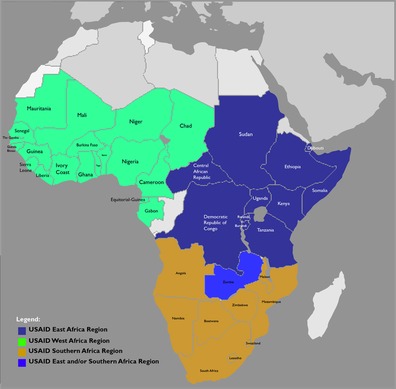The emergence of African cinema has profoundly altered how the world views Africa. Despite being in its infancy, the industry is making great progress, capturing local and foreign audiences with its distinctive storytelling and cultural diversity. It has grown in prominence throughout time, and its productions have been honoured at international film festivals. Despite its potential, there are a number of issues that must be resolved. This article will discuss the current situation of the African film industry, as well as its current markets, avenues for distribution, continuing activities, the investment potential it offers, and how streaming platforms have impacted this industry.
Current Situation of the African Movie Industry
|
|
|
|
|
|
African film production has increased significantly, with “Nollywood” recognised as a major contribution to this development. Currently, Africa can boost the recognition of its films globally. For instance, Nollywood’s “Lionheart” was submitted in 2019 for the Oscars; Keyan’s “Rafiki” premiered at the Cannes Film Festival in 2018, while others were recognised at the Berlin International Film Festival and the Toronto International Film Festival, among many others. Despite a notable increase in film production across the continent, the film industry’s potential is still largely unrealized across a significant portion of the continent. This is caused by a number of things, including inadequate infrastructure, difficult socio-political circumstances, and economic volatility.
Markets:
Local Markets
On the continent as a whole, interest in and appreciation for African films have expanded dramatically. Africans take pride and identity in seeing their own stories and cultural narratives depicted on television and in movies.
International Markets
The success of African movies has been greatly influenced by the African diaspora, which is dispersed throughout the world. African storytelling is in high demand due to the unwavering interest in their cultural history that African immigrants and their offspring have demonstrated throughout the world.
Avenues for Distribution:
Because of piracy, Africa has a weak distribution system. However, some distribution avenues include DVDs, Blu-Ray, digital TV Platforms, and direct website downloads.
DVD Sales
Traditional distribution methods, such as DVD sales, still hold relevance in some regions.
Cinema Releases
Although a lucrative field for movie distribution in many continents globally and a means for movie distribution, Africa has far fewer cinema houses.
Digital TV Platforms
Affordable digital film equipment and web platforms provide options for content creators to contact viewers directly.
In Nigeria, the use of digital technologies in the industry is expanding significantly. For instance, Jason Njoku, an entrepreneur in 2010, paid filmmakers to have the right to release their films online. Currently, his platform, IrokoTV, has more than 5,000 movies in its database.
In addition, five million people are employed by Africa’s film and audiovisual industries, which produce about 2,500 films annually and bring about US$5 billion in revenue. The exposure that African filmmakers and their works have received from streaming services like Netflix, Showmax, and others has been crucial to this rise. These services acknowledge the high calibre of African films and work with regional film crews to increase the international visibility of the sector.
|
|
|
|
|
|
Movie Production
Making movies is at the core of the African film industry. Establishing a production team, selecting the actors, shooting the film, and editing the raw footage into the final outcome that is released to the public are all typical stages in the production process.
African filmmakers create a wide variety of films that reflect the cultural, social, and historical aspects of the continent. These films span a variety of genres and issues. Authenticity, distinctive storytelling, and the incorporation of regional languages and customs are frequently traits that define these movies.
Movie Distribution
This is basically the last phase of the movie-making process, during which the movie is distributed to theatres, to consumer media (DVD, VCD, VHS, Blu-ray), or downloaded directly from the internet.
Talent and Skill Development:
The sector offers a platform for fostering and developing talent across a variety of disciplines. The African film industry plays a significant role in fostering and showcasing talent from the continent, including actors, directors, screenwriters, cinematographers, and other technical crew members. Aspiring professionals who are interested in the industry can take advantage of the opportunities it provides.
In addition, opportunities abound for production companies, cinematographers, movie editors, animation experts, costume designers, make-up artists, sound producers, choreographers, and catering teams, all of whom have vital skills needed for filmmaking.
Distribution Channels:
African film distribution has undergone tremendous change throughout history. Digital distribution is now more significant than traditional techniques like movie releases and DVD sales. Movie producers can release their films directly to audiences by using networks like YouTube.
The global distribution of African films has been boosted through streaming services and video-on-demand offerings. A crucial part of promoting African cinema to foreign viewers and possible investors is also played by film festivals.
Investment Potentials:
Due to the unrealized potential and growing global recognition of the African film industry, investors have a rare opportunity to participate in a revolutionary journey while earning sizable returns on their investments. The African movie industry offers great investment opportunities to investors since it’s a growing market with enormous gaps to fill.
Funding
While distribution firms want to grow their networks and serve a worldwide audience, film production companies look for money to create high-quality content.
Film Studios
Africa is the continent with the least access to movie facilities, according to UNESCO. The infrastructure gap can also be filled, and the sector can be elevated to international levels by investing in modern film studios and related technical facilities, which are vital for the industry’s growth.
Cinema Houses
In particular, with cinemas, the African film industry’s distribution stage offers a promising possibility. Cinemas and movie theatres generate more than 75% of all movie income worldwide. On the other hand, compared to other continents, African cinemas are utterly inadequate. For instance, there are over 40,000 movie theatres in the US, 20,000 in India, and about 13,000 in China. On the other hand, there are less than 1,000 theatres throughout Africa as a whole, or less than one theatre for every million people. Africa will require the construction of some 1,000 theatres in the near future to keep up with the movie industry’s rapid expansion. Although Nigeria is producing more movies, there is only one cinema screen per 787,402 people, and the continent continues to be the least well-served in terms of movie theatres.
Distribution Platforms
A major investment in distribution platforms will push the industry forward. The distribution system is one of the major obstacles preventing the expansion of the African film industry. Over 80% of movie distribution is lost due to piracy, which is a serious problem. After the first few weeks of release, these illegal activities lead to poor movie sales, which result in significant financial losses.
|
|
|
|
|
|
Boosting Awareness
Streaming services like Netflix, Showmax, YouTube, and Amazon Prime Video have unquestionably been instrumental in boosting the awareness of African films on a worldwide scale. These platforms have given filmmakers a global audience that was previously inaccessible, giving them a reach that has never before been possible. As a result, fans and critics from all over the world have recognised and praised African films.
Investment in the Film Industry
Netflix has contributed $175 million to the production of movies in Kenya, Nigeria, and South Africa since the company first entered the continent’s market in 2016. The economies of these nations have greatly benefited from these operations over the past seven years, with South Africa emerging as the platform’s top content provider. $218 million more was added to the GDP, $44 million more was collected in taxes, and $200 million more was added to household income. Additionally, by contributing money to the creation of Kenyan movies and providing acting instruction through a collaboration with the ICT ministry, Netflix has shown its support for the continent’s film industry.
Piracy Issue
African film distribution online is the key to releasing the industry from the grip of pirates and generating enormous profits for business owners. Jason Njoku acquired internet distribution rights from film makers after observing the difficulties with Africa’s movie distribution system and piracy. Since then, he has compiled a database of more than 5,000 African films on his online movie platform.
The African film market has established itself as a thriving and rapidly expanding one with enormous potential. The industry has advanced significantly, breaking through obstacles and achieving prominence on a global scale. Therefore, both on the continent and among diaspora populations abroad, there is an increasing demand for African storytelling. Despite the fact that problems still exist, efforts are being made to solve them through initiatives, inventions, and global partnerships.


